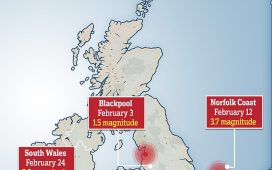[ad_1]
The New South Wales health minister, Brad Hazzard, says the ending of the state’s daily media conferences will give authorities “clear minds” to tackle the Covid pandemic, as the state again broke its daily record for Covid-19 cases and marked another troubling increase in the death toll.
The state recorded 1,599 new cases on Saturday and eight more deaths, including a man in his 30s and another in his 40s who both died at home. The toll from this year’s outbreak stands at 170.
But Hazzard spent much of his daily press conference – the second last before the NSW government abandons the practice – defending the decision to scrap them.
He said that while the conferences themselves were generally over in less than an hour, the three or four people involved usually had to spend as long as four hours beforehand preparing.
He said it was important the health department had “clear air” rather than preparing for the press conferences, that a return to daily videos being released online was adequate to update the number of cases and deaths, and that the public should have “no fear” a press conference would be held if needed.
“We are getting up into higher numbers and we need to have the time to bring our focus with clear minds as to what we need to do,” he said.
“I do not think anybody suggests that I or the premier or any of the other ministers have not been available. I think this is probably 500-something press conferences I have done in the last 20 months and it would be similar with the premier.
“What was being said is that if there is nothing particularly new on that particular day, except the numbers, then we can go back to .”
When asked about people who had died at home during the outbreak, Hazzard said that in several instances they had not been in contact at all with NSW Health. It is believed as many as 15 people have died at home.
“There have been a number of people die at home who have never even come to the attention of NSW Health [and] not even to a GP. And certainly in parts of Sydney, particularly in the south-west and west, I think, there is a lot of pressure.
“This is a disease that is highlighting some of the … inequities in our community, and in some households it can be a very large household where only one or two people are working. And I think there is a reluctance, in many instances, for people to want to actually tell us that they are actually not well, because they want to go on earning income.
“I say to those people, the federal government and the state government have put up economic [measures], there is also lots of other support for you, and the most important thing is to stay alive. Please do not hesitate to contact our health system for support … please, please, please, do not run the risk of dying.”
The deputy chief health officer, Jeremy McAnulty, said 13 more cases were reported in the far west of the state, including 10 in Broken Hill and three in Wilcannia. The total number of cases in the far west is 149, including 116 in Wilcannia and 32 in Broken Hill.
In the Australian Capital Territory, 15 new cases were recorded, 14 of which were linked to known outbreaks. Nine were in quarantine throughout their infectious period. The other six were in quarantine for part of their infectious period.
On Saturday morning, authorities were notified of a positive case in a detainee who had recently been transferred into ACT’s prison, the Alexander Maconochie Centre.
The ACT chief minister, Andrew Barr, said the territory continued to lead the country in vaccination: 95% of the population over 60 have had one dose, as have 50% of those aged 25-29, and 30% of those aged 16-19.
“This gives us great confidence our vaccine program will well exceed the national targets,” Barr said.
“What’s been holding the territory back is lack of vaccine supply.”
[ad_2]
READ SOURCE





